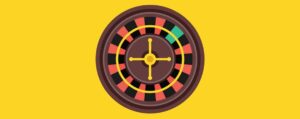- Casino
- By State
- Alabama
- Alaska
- Arizona
- Arkansas
- California
- Colorado
- Connecticut
- Delaware
- Georgia
- Florida
- Hawaii
- Idaho
- Illinois
- Indiana
- Iowa
- Kansas
- Kentucky
- Louisiana
- Maine
- Massachusetts
- Maryland
- Michigan
- Minnesota
- Mississippi
- Missouri
- Montana
- Nebraska
- Nevada
- New Hampshire
- New Jersey
- New Mexico
- New York
- North Carolina
- North Dakota
- Ohio
- Oklahoma
- Oregon
- Pennsylvania
- Rhode Island
- South Carolina
- South Dakota
- Tennessee
- Texas
- Utah
- Vermont
- Virginia
- Washington
- West Virginia
- Wisconsin
- Wyoming
- By State
- Slots
- Poker
- Sports
- Esports
- Home
- Is Poker Gambling or a Game of Skill?
Is Poker Gambling or a Game of Skill?
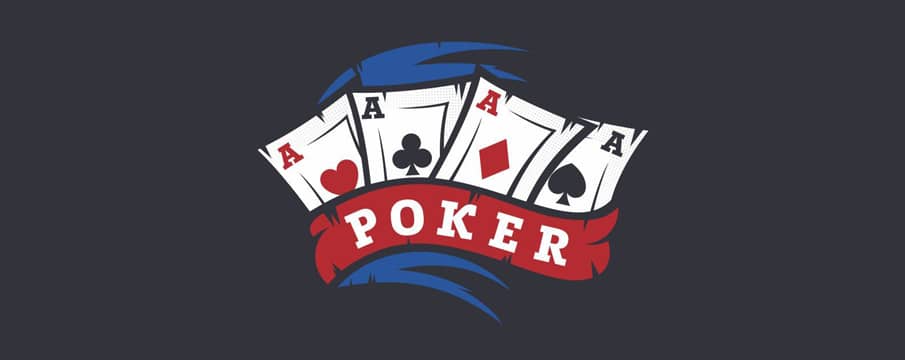
Is poker gambling, a sport or a game of skill? This debate has raged with some intensity over the years, prompting legal discussion and internet card rooms the courage to operate in the United States, precisely because they considered poker a game based on skill and not luck.
Over the years, the argument has see-sawed in either direction, with defendants of real money poker insisting that the game has all the characteristics of a skill-based competition and those opposed to it, fixating on the (predictable) randomness that is understandably part of the game’s fabric.
In probing the question for a concrete answer, we will approach the matter from all three popular arguments, consider some of the legal rulings, and take a look at what defines a professional gambler.
Poker as a Game of Chance
Throughout history, card games have fascinated players. It was until very late in human society that we learned how to predict the erratic patterns in card decks. In fact, it wasn’t until the Massachusetts Institute of Technology (MIT) formed an underhand team of card counters who then beat casino houses repeatedly and successfully won millions of dollars playing blackjack.
They did this by designing the term predictive randomness. In other words, a deck contains only this many cards and they all appear on the table based on fixed percentages. If you can learn how to predict what card is most likely to appear next, you are effectively removing the chance factor from the game to win consistently.
Does this tie into poker? It certainly does. When we ask if poker is gambling or skill, the answer is – both. You can either gamble playing poker, not factoring in any of the underlying mathematical logic, or you can learn and master the game to the point where you are minimizing the randomness of events.
Naturally, many people who are not familiar with this subtler side of poker are happy to argue that the game is one where chance has the final say. You cannot fully deny that chance does play a part in poker, and this is precisely why many people (mistakenly) call it a game of chance after all. With this first aspect of the argument settled, let’s take a look at why some people think poker is more of a skill rather than gambling.
Is Poker a Game of Skill?
Shortly after poker was suspended in the United States under UIGEA on April 15, 2011, a court battle ensued. In the case of United States v. DiCristina, US district judge Jack Weinstein ruled that poker was a game of skill, and as such, it did not violate the Illegal Gambling Business Act (IGBA).
That was a huge victory for the poker lobby in the country, but naturally, it doesn’t quite answer the question at hand completely. To understand why poker is a game of skill more so than gambling, we need to look at the specific nature of the game.
We have already established that if you treat poker as a pure game of random luck, hoping fate to bring you the right card, you are certainly going to depend on luck more so than any knowledge that you may have about the game.
In other words, you will be playing dice against opponents who are probably playing chess. As we mentioned before, there is predicted randomness in poker. Each new card tells you what the chance of another card showing up is. That is why players who sit the farthest from the blinds usually have an advantage, as, by the time their turn comes, they have collected information about what other opponents may or may not have.
An inexperienced player will argue that this is still a guessing game, and they would be partially right. However, someone who understands poker knows that the true skill lies in not predicting but anticipating the next card. Another very strong argument for poker as a game of skill is the fact that the game has evolved in terms of strategy.
If you were to play poker the same way you played ten years ago against today’s professional players, you would be defeated.
Several Arguments for Poker as a Game of Skill
By now, you have probably found out that our editorial team’s opinion is that poker is a game of skill. We have several strong arguments to put forward in defense of this thesis, and they all have to do with trends observed over the past 20 or so years of playing and observing the game.
We have spoken with several professional players, including Jonathan Little and Maria Ho, who have helped us understand a little more about the institution of poker as a sport and skill rather than the luck of the draw, which is admittedly a part of the gameplay.
#1 Best Players Post Consistently Good Results
If you want proof of poker’s skill-driven gameplay, you don’t have to look farther than the world’s best players in the game. The truth is some players have amassed enviable amounts, and while there are a few cases of random luck, the majority of top-earning players in poker have won their earnings through hard work and consistently good results.
That is one of the strongest arguments to support the claim that poker is motivated by skill more so than any luck of the draw or randomness event. You will still have bad beats, of course, and sometimes you will have to fold, but this is all based on the statistical probability that you understand and act upon to your ultimate benefit.
#2 Strategies Evolve All the Time
As mentioned earlier, poker is a living, breathing game. Fairly simple in terms of gameplay, its depth allows for constantly evolving strategies. The “meta” or “standard game” is changing all the time, as confirmed by Maria Ho, and players are finding new ways to defy expectations and gain an advantage.
Some players are looking to respond and adapt, but others are completely subverting the established paradigms in a bid to gain the upper hand. If you are clever enough to develop a new stratagem and win a big tournament, whether this is the WSOP or WTOP Main Event or just a WSOP Bracelet, you are looking at a huge boost to your bankroll.
#3 A Player Can Learn to Beat the Majority of Players
Another proof that the game of poker is deeply rooted in skill and not luck is the fact that you can be trained to defeat the majority of players. That doesn’t mean you will defeat everyone, or the occasional lucky hand won’t play a dirty trick on you. What it means, though, is when you draw the line will be in the black.
If you get a skilled player to mentor you, all the more reason to check in with Jonathan Little, as a matter of fact, you will be initiated into a world where maths serves you well even if you don’t have a sound grasp of numbers. Players can be taught to stick to the best practices in the game and therefore garner an important advantage over unwitting opponents.
One excellent example is Maria Konnikova, who went from a researcher to a poker professional with $311,000 in live earnings at the time of writing.
#4 Skill Gaps Are Immediately Evident
Weaker opponents are easier to spot when playing live poker. They are collectively described as “the fish,” and the term “beat the fish” is used by skilled players to describe defeating a lot of lower-tier players to add to the better players’ own bankroll. With this in mind, it’s very easy to spot a player who is less experienced and versed in the game of poker.
Put this way, a novice player will hesitate and second-guess their decisions a lot more than a veteran player, who will probably just know what to expect. In any event, spotting a weaker player is not difficult, especially when you have a few years of poker experience under your belt.
Poker as a Sport: Tournaments and Trends
One excellent parallel we have discovered over the years is comparing poker to chess. Clearly, chess plays with all pieces on the board, so there is no element of surprise there. Chess has developed as a sport over the years, and so has poker, more or less.
There is still some objection to poker, of course, and you won’t see state-sponsored competitions for poker or the game in the Olympics, at least not any time soon, but the truth is poker has a lot to do with sports.
Players who excel and manage to reach the highest tiers of the game show many of the attributes that we ascribe to professional sportsmen and women. Determination, performing under pressure, and acting rationally in difficult situations are just some of the skills that go into forging a successful poker player.
Similarities between athletes and poker players aside, there are many competitions that contribute to the game’s status as a sport, even though they are privately organized.
The World Series of Poker (WSOP) and World Poker Tour (WPT) have been around for years, establishing a well-developed and interconnected ecosystem of professional poker, with myriad tournaments available every year.
Poker doesn’t necessarily need to be recognized as an official sport by an athletics organization. In fact, all the game needs is a more welcoming regulatory framework in each jurisdiction. There is sufficient demand and interest in the game already with the last hurdle being somewhat unclear regulation.
Professional Poker Players: Defining the Terminology
Now, one of the arguments you can use in proving or disproving a game as requiring a sufficient amount of skill to play it to success is to look at the people who play it. If you were to visit any Las Vegas casino today and head to the slot section, you would hardly see any evidence about actual skill going into the spin of the reels.
However, poker is another story altogether. We have some clear frameworks we can use to define whether the game requires skill or, conversely, it relies on sheer luck akin to the spinning of slot reels.
Just look at the professional players and, more specifically, what constitutes a professional poker player in the first place. A professional player is someone who has consistently won at poker over the years. There are many good examples of success.
The All-Time Money List never stays the same because players are constantly winning and losing money. However, the game had produced 2068 millionaires when we last checked just from playing live events, excluding any winnings that may have been accumulated through remote poker.
Naturally, the best players are orders of magnitudes more successful than the rest. Bryan Kenney ($56,403,505), Justin Bonomo ($53,263, 236), and Daniel Negreanu ($42,053,307) are a few of the examples of how someone can learn and then master the game of poker.
Success Stories Proving Poker as a Game of Skill
Alright, so if you really want to prove that poker is a game of skill, the best way to go about this is to take a person who has no previous experience in the game and train them and see how far they can make it. That is where our poker success stories come in. Perhaps none exemplifies the link between skill and poker better than Maria Konnikova’s story.
A Ph.D. researcher, Konnikova, embarked on her poker journey in a bid to study the psychology of players and the game itself. Having had no prior training or any specific interest to play, Konnikova decided that the best way to put herself in the shoes of a poker player would be to walk in them first, and she did.
Konnikova first approaches poker for purely academic reasons, as stated here. She found a trusted mentor Erik Seidel, who has won $5 million playing the game in 2011, 2015, and 2016. Seidel took to Konnikova and quickly introduced her to the inner circles of poker, where she had the opportunity to learn from some of the best players there were, learning etiquette, strategy, and composure.
After only a few months of training, Konnikova started winning while working on her books dedicated to understanding poker psychology and the players involved. She revealed some interesting characteristics of the male brain, with male players in the lower tiers often dismissing Konnikova because of her gender.
Nevertheless, she proved that as a game of skill, poker is not exclusively a male’s domain. We cite Konnikova’s success story because it’s one where you can see how learning from the best players in the game can quickly put you on a winning path as opposed to figuring things out by yourself for years to come.
Poker Requires Constant Learning
Is poker a skill? Yes. How do we know? It requires constant learning. Poker may be a game with a simple premise, but to master it in-depth, you will need to continue evolving in your understanding. It’s not just what you know about probability and likely outcomes. It’s also how certain players play.
When you look at poker, it’s a game of stats, but to be able to make better-informed decisions, you also need to study your opponents. Venturing into the WSOP Main Event means that you are likely going to face many of the Top 25 players in the world.
In other words, going through their profiles, analyzing their playstyle, and constantly learning from that is part of what it means to be a poker player. You cannot allow yourself to stagnate in your understanding of the game, and this is another definitive proof of why the game is a matter of skill, more so any luck that could be involved.
Players are constantly doing their best to improve, and as they do, they continue to find new challenges in up-and-coming professionals who are only making their mark on the poker scene and driving some interesting changes as they do.
To stay on top, though, you don’t have to just have won millions of dollars. You need to be constantly on the lookout for new and emerging trends that can shake up the entire world of poker. Accumulating knowledge is key to success, and this is why every professional player from Negreanu to Konnikova should keep studying the game of poker.
Is Online Poker as Skill-Based as Live Poker?
By now, you should be fairly convinced that poker is anything but gambling. However, when you take online poker, you should consider that a few things about the game change quite abruptly, and this is precisely what you need to keep an eye out for.
Live poker usually involves a lot of body language, much higher stakes, and general familiarity with your opponents. When you play online, though, you are playing to amass the biggest bankroll by playing as many tables as you can at the same time.
Now, a popular argument here is that because you don’t know who you are playing against, you cannot anticipate their strategy or moves, which is understandable. Does this mean that your success in the online format relies on luck more so than skill? We doubt that.
The unknowns may have just increased, but the paradigm remains the same. You want to act on hard facts and on the strongest evidence that one outcome is more likely than another. There are statistically proven hands you should play and others that are riskier, which you can adjust depending on how well your bankroll is performing.
Naturally, online poker takes some of the skill out but then again, it allows players to focus more heavily on the stats and probability of certain outcomes, too. Live and online poker is pretty much the same coin.
Let’s Settle It: Is Poker Gambling or a Skill?
After what now appears to be a lengthy argumentation in favor of poker as a game of skill, we are fairly confident to say that the game is indeed one that relies heavily on a deeper understanding of the subject matter. Was that not the case, you would not be able to teach complete novices into defeating the majority of players.
A game of chance is, by definition, very unpredictable, with outcomes constantly catching players by surprise. While you cannot always expect the luck of the draw to favor you, you can always learn what cards give you a good to strong chance to win and act on those.
Poker is about making the right gambit more so than blindly trusting that the next community card would favor you.
Related Topics:
Luke is a media graduate who is looking to build upon his experiences from his strong love of sports betting and casino games which started during his first year of college. His fresh mindset always brings new content ideas to the team and his editorial skills will continue to grow with the help of the upper management team at Gambling News.
Must Read
Legal
November 17, 2019
Philippine Gaming Operators Involved in Prostitution Ring
Casino
October 7, 2019
Haven Gaming to Build Danville Casino in IL
Casino
October 6, 2019
MGM To Pay $735M as Part of Settlement for Las Vegas Shooting
Casino
September 28, 2019
Swiss Casinos Group Partners with Playtech
Sports
September 27, 2019
Mobile Sports Betting Finally Coming to Indiana
More Articles















December 3, 2024
Boxers Who Started Late and Became Champions
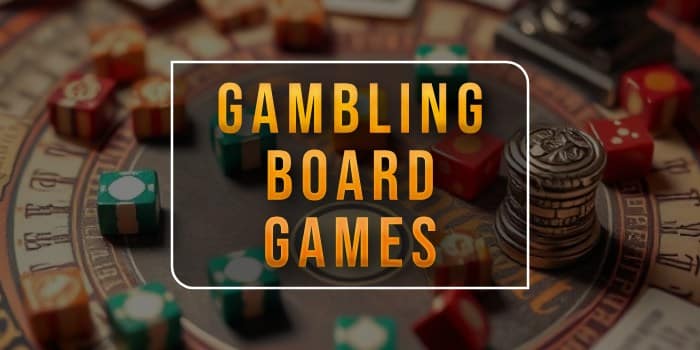
November 19, 2024
Best Gambling Board Games

October 25, 2024
Top 20 Books About Gambling
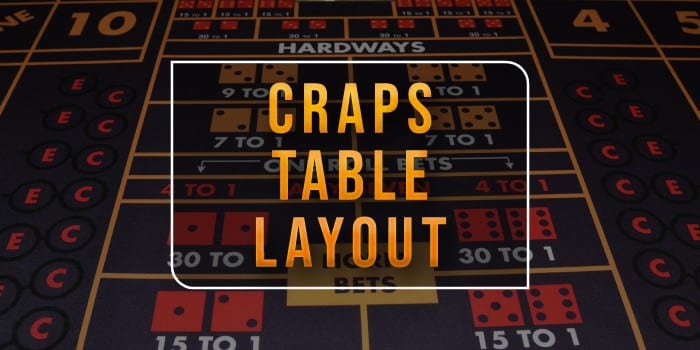
October 23, 2024
Craps Table Layout

Casino
October 21, 2024
Megabucks Slot Machines
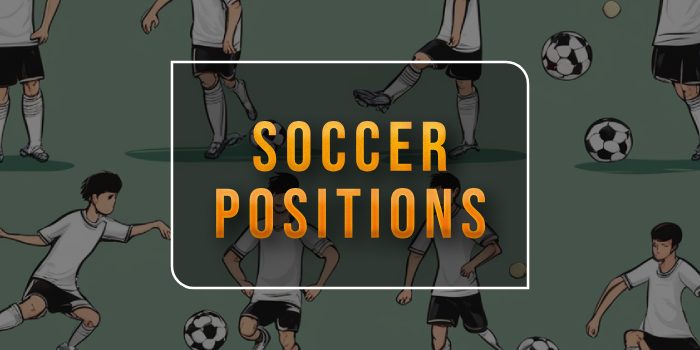
September 30, 2024
What Soccer Positions Are There and How They Work

September 27, 2024
The Best Arcades in Las Vegas
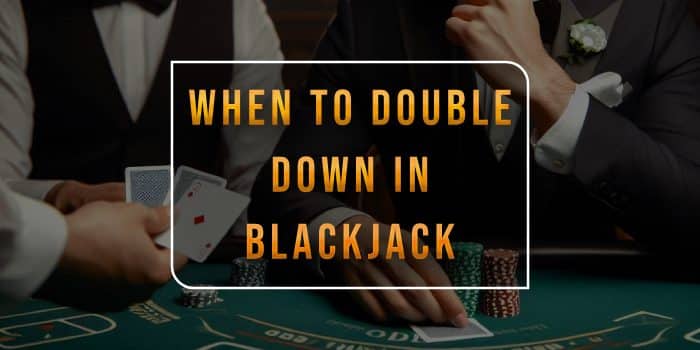
September 26, 2024
When to Double Down in Blackjack

September 24, 2024
Best Offshore Sportsbooks and Betting Sites

September 22, 2024
League of Legends World Championship: Odds, Tips & Predictions

September 19, 2024
How to Become Professional Gambler
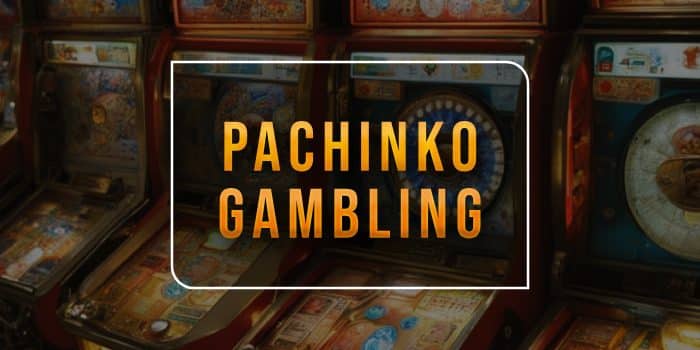
September 17, 2024
What Is a Pachinko Game Machine?

September 16, 2024
Michael Jordan Gambling: The Good, the Bad, and the Ugly
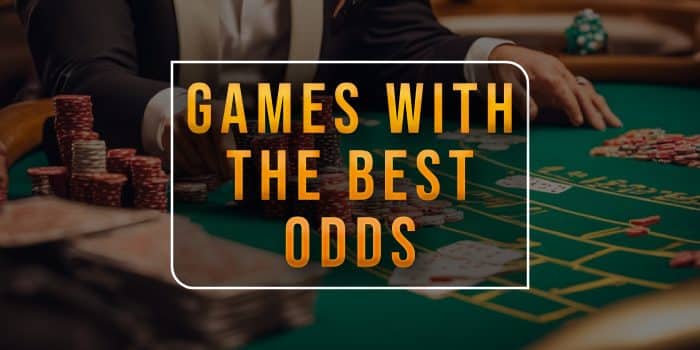
September 13, 2024
Best Odds in Vegas – Which Game Is Superior?


